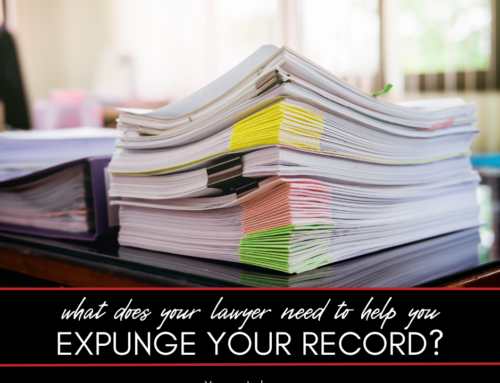
Navigating the complexities of criminal records in Indiana can be overwhelming, but understanding who can access your history is a crucial step towards expungement. If you’re considering clearing your record, it’s essential to know who might be looking at it now and how expungement can help.
Who Can See Your Criminal Record in Indiana?
This guide explains the following:
- Understanding criminal records in Indiana
- Who has access to your criminal record
- Impact of expungement on record access
- Benefits of expunging your record
- Steps to expunge your record in Indiana
Here’s a closer look at each.
Understanding Criminal Records in Indiana
In Indiana, a criminal record is a formal log of your interactions with the criminal justice system. This includes records of arrests, charges, court proceedings, and any convictions or sentences you may have received. These records are compiled and maintained by various law enforcement agencies, including local police departments, sheriffs’ offices, and state agencies. It’s important to know that a criminal record does not just reflect convictions; it also includes instances where you may have been arrested but not convicted. Understanding the specifics of your record is vital because it helps in identifying which parts of your history may be eligible for expungement. Each detail, from the nature of the offense to the date of the final judgment, plays a role in the expungement process.
Who Has Access to Your Criminal Record
In Indiana, criminal records are, for the most part, public records. This means that various entities, including employers, landlords, and educational institutions, can request and view parts of your criminal record. This accessibility can have implications for job applications, housing opportunities, and other areas where background checks are common. However, there are restrictions on what specific details can be publicly accessed. For example, sealed records or juvenile records might not be as easily accessible. Certain sensitive details are often limited to law enforcement agencies or the courts, especially if they pertain to ongoing investigations or sensitive personal information.
Impact of Expungement on Record Access
Expungement in Indiana is a legal process that essentially seals your criminal record from public view. When your record is expunged, it means that most organizations and individuals will no longer have access to it through standard background checks. This can be particularly beneficial when applying for jobs, loans, or housing, as these processes often involve a background check. It’s important to note, however, that expunged records are not completely erased. They are still accessible to certain law enforcement agencies and can be considered in future criminal proceedings if necessary. But for most practical purposes, an expunged record is invisible to the public eye, allowing you to move on from past incidents without them impacting your future opportunities.
Benefits of Expunging Your Record
Expunging your criminal record in Indiana can have several significant benefits. It can open up job opportunities that might have been closed to you due to past convictions or arrests showing up in background checks. Housing opportunities also expand, as many landlords conduct criminal background checks on potential tenants. Beyond these practical benefits, expungement can offer peace of mind and a sense of closure, allowing you to move forward without the shadow of your past affecting your present and future. It’s a chance to start anew, with a clean slate, in both a legal and a personal sense.
Steps to Expunge Your Record in Indiana
The process of expunging your criminal record in Indiana involves several steps and can vary depending on the specifics of your case. First, you need to determine if you are eligible for expungement. This typically depends on factors like the nature of your offense, how much time has passed since the offense or the completion of your sentence, and whether you have any pending charges. Once eligibility is confirmed, you must file a petition for expungement in the court where the charges were filed. This petition must include specific details about your record and the reasons for requesting expungement. The court then reviews your case, and if your petition is approved, orders the relevant agencies to seal your records. It’s important to note that this process can be complex, and the requirements can be strict. Therefore, seeking legal guidance from an experienced expungement attorney can be crucial in navigating this process successfully.
FAQ About Who Can See Your Criminal Record in Indiana
Check out these commonly asked questions about who can see your criminal record in Indiana. If you don’t see the answers here, please call our office and we’ll get you the information you need.
What is a Criminal Record?
A criminal record is a formal document maintained by law enforcement agencies that chronicles your interactions with the criminal justice system. This includes any history of arrests, the charges filed against you, and the outcomes of those charges, such as convictions or acquittals. In addition to basic information about the incidents, such as dates and nature of the offenses, your criminal record may also contain details like fingerprints, photographs, and court documents. It’s important to note that a criminal record is not limited to convictions; even if you were arrested and later found not guilty, this information might still appear on your record. Essentially, it’s a comprehensive account of any legal encounters you’ve had, serving as a reference point for law enforcement, legal entities, and sometimes other organizations that conduct background checks.
How Long Does the Expungement Process Take?
The duration of the expungement process in Indiana varies widely and depends on several factors. These include the complexity of your criminal record, the specifics of your individual case, and the current workload of the court handling your expungement request. In some instances, the process can be relatively quick, taking only a few months, while in more complicated cases, it might take a year or more. Factors such as having multiple records in different jurisdictions or having a mix of convictions and arrests can add to the complexity and length of the process. Additionally, court schedules and backlogs can also impact the timeline, as periods of high demand can slow down the process.
Do I Need a Lawyer for Expungement?
Hiring a lawyer for the expungement process in Indiana is not mandatory but is highly recommended. An experienced attorney can offer significant advantages. They can help determine if you’re eligible for expungement, guide you through the intricacies of the legal process, ensure that your application is complete and accurate, and represent you in court if necessary. The expungement process involves navigating legal requirements and deadlines, and any errors or omissions in your application can lead to delays or a denial of your petition. An attorney with expertise in expungement law can help avoid such pitfalls, thereby increasing the likelihood of a successful outcome.
What Happens After My Record is Expunged?
After your criminal record is expunged in Indiana, it’s treated legally as though the offenses never occurred. This means that, for most purposes, it’s as if you were never arrested or convicted of those crimes. The records aren’t completely destroyed but are sealed from public access. This means they won’t show up in most background checks, essentially removing barriers you might face in employment, housing, or other areas where a criminal history can be a disadvantage. However, it’s important to note that in certain circumstances, like when applying for specific professional licenses or law enforcement jobs, you may still need to disclose the expunged offenses. Despite these exceptions, expungement generally offers a fresh start and can significantly alleviate the burden that a criminal record can impose on various aspects of your life.
Do You Need to Talk to an Indiana Expungement and Sealing Attorney?
If you’re ready for a fresh start, we may be able to help. Call us at 317-647-5476 or fill out the form below for a free consultation on expungement. We’re here to answer your questions and get you the fresh start you deserve.













